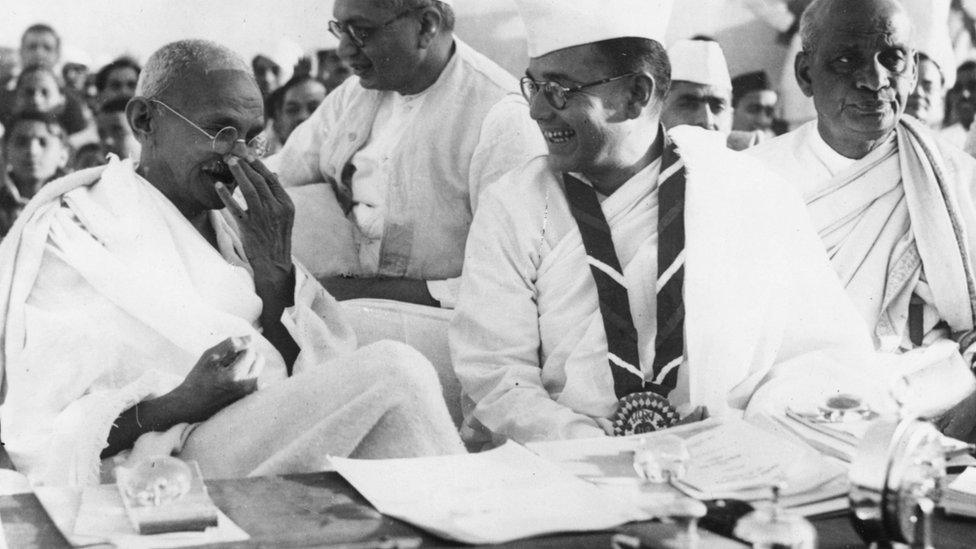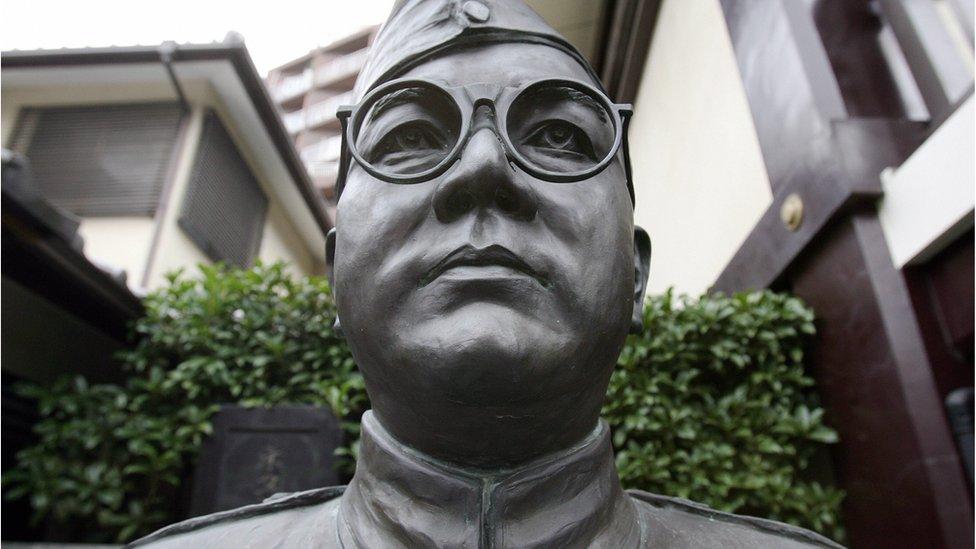India state declassifies files on Subhash Chandra Bose
- Published

Many Indians refuse to believe that Bose (R) died in a plane crash
India's West Bengal government has declassified 64 files on revolutionary leader Subhash Chandra Bose.
The files, which were in the possession of Kolkata police, will be put on public display, but their contents are not yet known.
Mr Bose had approached, external Germany and Adolf Hitler to form an army to kick the British out of India and was wanted by allied forces.
His death has been the subject of a number of conspiracy theories in India.
It is not known how many more classified files on him the Indian government is in possession of.
Many people in India have refused to accept the official version of events that Mr Bose died in an aeroplane crash in 1945.
No photograph of the body, which was said to have been cremated in Taiwan, was released.

Russian prisoner in Siberia? Holy man in India? There are a number of conspiracy theories on the fate of Mr Bose
Theories about what "really happened" to Bose range from him being a Russian prisoner in Siberia to the claim that he spent his last years hiding in India as a holy man.
Indian journalist Anuj Dhar, who wrote a book titled India's Biggest Cover Up, alleged that, external Bose had faked his death to avoid being captured by US and UK forces after World War Two.
The contents of the declassified files are not fully known as yet, so it is not clear if they will be able to shed any light on his death.
Some analysts say that the files in Kolkata are not as important as the still-classified files in Delhi.
The BJP government, while in opposition, had demanded that the Congress government declassify 39 files pertaining to Bose.
However since coming to power it has refused, external to declassify the 39 files.
The Times of India quoted a source, external in the prime minister's office as saying that it could "not declassify files related to Subhash Chandra Bose as it [would] adversely affect relations with foreign countries".
The central government has not commented on the West Bengal government's move to declassify the files in their possession.